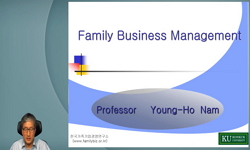기업승계는 기업이 법인인 경우 지분을, 법인이 아닌 경우 사업용 재산을 상속 또는 증여에 의해 취득함으로써 해당 기업의 경영권을 승계하는 것을 말한다. 기업승계가 문제로 되는 것은 ...
http://chineseinput.net/에서 pinyin(병음)방식으로 중국어를 변환할 수 있습니다.
변환된 중국어를 복사하여 사용하시면 됩니다.
- 中文 을 입력하시려면 zhongwen을 입력하시고 space를누르시면됩니다.
- 北京 을 입력하시려면 beijing을 입력하시고 space를 누르시면 됩니다.
https://www.riss.kr/link?id=A101791925
- 저자
- 발행기관
- 학술지명
- 권호사항
-
발행연도
2015
-
작성언어
Korean
- 주제어
-
등재정보
KCI등재
-
자료형태
학술저널
- 발행기관 URL
-
수록면
35-76(42쪽)
-
KCI 피인용횟수
4
- 제공처
-
0
상세조회 -
0
다운로드
부가정보
국문 초록 (Abstract)
특히 중소기업의 경우에는 독특한 노하우를 바탕으로 영업을 계속해 온 경우가 많아서 경영자의 교체와 무관하게 이를 보전할 수 있도록 지원할 필요성이 인정되면서도 동시에 대기업의 경우와 비교할 때 조세평등의 원칙과의 관계에서 상대적으로 문제될 소지가 적기 때문에 우리나라를 포함한 주요 국가들은 그 중소기업을 중심으로 기업승계를 위한 세제상의 지원제도를 두고 있다.
우리나라는 1987년에 구 『조세감면규제법』 제67조의9에서 처음으로 기업승계세제를 도입한 이후 지속적으로 제도를 확충하고 보완하여 현재는 거의 완비된 세제를 갖추게 되었다. 따라서 개별적인 규정의 차원에서는 더 이상 크게 개선할 여지가 없을 정도라고 하여도 과언이 아니다. 그러나 저자는 다음과 같은 점에서 여전히 문제와 개선여지가 남아 있다고 생각한다.
첫째, 지나친 제도의 확장을 경계하여야 할 것이다. 아울러 중소기업등의 업종을 제한하고 사업용 자산의 범위를 제한할 필요가 있다. 둘째, 종업원 등 제3자에 대한 증여에 대하여 제도의 적용을 확대하고, 증여와 상속을 동일하게 다룰 필요가 있다. 셋째, 과세우대조치의 적용방식을 개선할 필요가 있다. 마지막으로 비상장주식의 평가방법을 개선할 필요가 있다.
기업승계는 기업이 법인인 경우 지분을, 법인이 아닌 경우 사업용 재산을 상속 또는 증여에 의해 취득함으로써 해당 기업의 경영권을 승계하는 것을 말한다. 기업승계가 문제로 되는 것은 기업을 온전하게 승계하는데 장애물이 적지 않기 때문이다. 대표적으로 유류분 청구로 인한 재산의 분산, 적지 않게 소요되는 승계자금, 상속세 및 증여세 부담을 들 수가 있다. 이중에서 특히 문제가 되는 것은 상속세 및 증여세 부담이다. 대체로 상속세 및 증여세에 대하여는 고율의 세율이 적용되어 다액의 세금을 납부해야 하는 까닭에 세금납부에 필요한 현금을 조달하고자 주식 또는 사업용 자산을 처분하는 과정에서 기업의 계속성이 위협을 받게 될 수 있기 때문이다.
특히 중소기업의 경우에는 독특한 노하우를 바탕으로 영업을 계속해 온 경우가 많아서 경영자의 교체와 무관하게 이를 보전할 수 있도록 지원할 필요성이 인정되면서도 동시에 대기업의 경우와 비교할 때 조세평등의 원칙과의 관계에서 상대적으로 문제될 소지가 적기 때문에 우리나라를 포함한 주요 국가들은 그 중소기업을 중심으로 기업승계를 위한 세제상의 지원제도를 두고 있다.
우리나라는 1987년에 구 『조세감면규제법』 제67조의9에서 처음으로 기업승계세제를 도입한 이후 지속적으로 제도를 확충하고 보완하여 현재는 거의 완비된 세제를 갖추게 되었다. 따라서 개별적인 규정의 차원에서는 더 이상 크게 개선할 여지가 없을 정도라고 하여도 과언이 아니다. 그러나 저자는 다음과 같은 점에서 여전히 문제와 개선여지가 남아 있다고 생각한다.
첫째, 지나친 제도의 확장을 경계하여야 할 것이다. 아울러 중소기업등의 업종을 제한하고 사업용 자산의 범위를 제한할 필요가 있다. 둘째, 종업원 등 제3자에 대한 증여에 대하여 제도의 적용을 확대하고, 증여와 상속을 동일하게 다룰 필요가 있다. 셋째, 과세우대조치의 적용방식을 개선할 필요가 있다. 마지막으로 비상장주식의 평가방법을 개선할 필요가 있다.
다국어 초록 (Multilingual Abstract)
Especially for the small and medium sized enterprises (hereinafter ‘SME’), there are some know-hows on the business. Therefore it is needed that notwithstanding the change of the control to preserve the know-hows. In case for SME there is relatively small risk for the violation of the principle of equality.
Including our country, many countries in the world has tax incentive for the succession of SME. In Korea, the Inheritance and Gift Tax Act (hereinafter, ‘IGTA’) regulates the tax incentive for the inheritance of the SME and the Tax Incentive Restriction Act (hereinafter, ‘TIRA’) regulates the tax incentive for the gift of the equity of the SME. In the beginning the incentives were not sufficient. However with the annual revisions of the tax laws, it has have almost complete regime for tax incentives. In the author’s opinion, at the present stage, we should improve the tax incentive system so that it should not violate the principle of equality.
First, we should limit the scope of SME which qualifies for the tax incentive. Also the coverage of tax incentives can be widened to the third party who has no kinship.
Second, the application stage of tax incentive shall be the valuation of the inherited assets.
Third, the scope of business assets shall exclude the real estate.
Fourth, the tax incentive for gift and inheritance shall be balanced equally.
Finally, the valuation of equity shall be improved.
Succession of enterprises means succeeding to the control of the enterprise, if the enterprise is an entity by acquiring the equity through inheritance or gift, and if the enterprise is not an entity then by acquiring the business asset through inheri...
Succession of enterprises means succeeding to the control of the enterprise, if the enterprise is an entity by acquiring the equity through inheritance or gift, and if the enterprise is not an entity then by acquiring the business asset through inheritance or gift. The succession of enterprises can be problematic because there are many obstacles to the whole succession of the enterprises. For example there are problems of the legal portion of an heir, cost of inheritance and tax for inheritance and gift. Among the problems what is the most burdensome is the tax; in general there applied higher tax rate than any other taxable events. In preparing for the fund required for payment the successor may have to sell the equity or business assets.
Especially for the small and medium sized enterprises (hereinafter ‘SME’), there are some know-hows on the business. Therefore it is needed that notwithstanding the change of the control to preserve the know-hows. In case for SME there is relatively small risk for the violation of the principle of equality.
Including our country, many countries in the world has tax incentive for the succession of SME. In Korea, the Inheritance and Gift Tax Act (hereinafter, ‘IGTA’) regulates the tax incentive for the inheritance of the SME and the Tax Incentive Restriction Act (hereinafter, ‘TIRA’) regulates the tax incentive for the gift of the equity of the SME. In the beginning the incentives were not sufficient. However with the annual revisions of the tax laws, it has have almost complete regime for tax incentives. In the author’s opinion, at the present stage, we should improve the tax incentive system so that it should not violate the principle of equality.
First, we should limit the scope of SME which qualifies for the tax incentive. Also the coverage of tax incentives can be widened to the third party who has no kinship.
Second, the application stage of tax incentive shall be the valuation of the inherited assets.
Third, the scope of business assets shall exclude the real estate.
Fourth, the tax incentive for gift and inheritance shall be balanced equally.
Finally, the valuation of equity shall be improved.
목차 (Table of Contents)
- 국문초록
- Ⅰ. 서론
- Ⅱ. 중소기업승계에 관한 현행 세제의 개요
- Ⅲ. 기업승계세제와 조세평등원칙과의 상충 관계
- Ⅳ. 비교법적 고찰
- 국문초록
- Ⅰ. 서론
- Ⅱ. 중소기업승계에 관한 현행 세제의 개요
- Ⅲ. 기업승계세제와 조세평등원칙과의 상충 관계
- Ⅳ. 비교법적 고찰
- Ⅴ. 현행 중소기업승계세제와 문제점 및 개선방안
- Ⅵ. 결론
- 參考文獻
- Abstract
참고문헌 (Reference)
1 정승영, "현행 가업승계세제의 입법적 개선방안" 한국기업법학회 28 (28): 121-150, 2014
2 한수웅, "헌법학" 법문사 2015
3 최서현, "중소기업 가업승계 조세지원제도의 개선방안" 한국세무회계학회 (42) : 103-121, 2014
4 원종학, "주요국의 상속・증여세제 현황 및 최근 동향" 한국조세연구원 2012
5 안종석, "주요국의 가업상속 과세특례제도 연구" 한국조세재정연구원 2014
6 임승순, "조세법" 박영사 2014
7 오윤, "자본이득과세제도 개선방안" 한국국제조세협회 28 (28): 177-221, 2012
8 박재환, "상증법상 비상장주식 평가제도의 문제점과 개선방안" 한국세무학회 28 (28): 119-160, 2011
9 박진모, "상속세 및 증여세법상 비상장주식 평가시 적용되는 자본환원율의 적정성에 관한 연구" 대한경영학회 23 (23): 287-304, 2010
10 김완일, "가업승계의 지원과 자본이득과세제도 도입의 필요성에 관한 연구" 한국세무학회 11 (11): 399-429, 2010
1 정승영, "현행 가업승계세제의 입법적 개선방안" 한국기업법학회 28 (28): 121-150, 2014
2 한수웅, "헌법학" 법문사 2015
3 최서현, "중소기업 가업승계 조세지원제도의 개선방안" 한국세무회계학회 (42) : 103-121, 2014
4 원종학, "주요국의 상속・증여세제 현황 및 최근 동향" 한국조세연구원 2012
5 안종석, "주요국의 가업상속 과세특례제도 연구" 한국조세재정연구원 2014
6 임승순, "조세법" 박영사 2014
7 오윤, "자본이득과세제도 개선방안" 한국국제조세협회 28 (28): 177-221, 2012
8 박재환, "상증법상 비상장주식 평가제도의 문제점과 개선방안" 한국세무학회 28 (28): 119-160, 2011
9 박진모, "상속세 및 증여세법상 비상장주식 평가시 적용되는 자본환원율의 적정성에 관한 연구" 대한경영학회 23 (23): 287-304, 2010
10 김완일, "가업승계의 지원과 자본이득과세제도 도입의 필요성에 관한 연구" 한국세무학회 11 (11): 399-429, 2010
11 안숙찬, "가업승계 지원세제의 개선방안" 대한경영학회 26 (26): 3189-3210, 2013
12 심충진, "가업상속기업의 지속경영을 위한 연구" 국회예산정책처 4 (4): 149-180, 2015
13 박훈, "가업상속공제제도" 국회도서관 2015
14 鹿志村裕, "解説 平成27年度税制改正" 2015
15 金子宏, "租税法" 弘文堂 2015
16 久米和夫, "事業承継税制に関する一考察" (17) : 2012
17 Cummings, Jr, Jasper L., "The Silent Policies of Conservation and Cloning of Tax Basis and Their Corporate Applications" 48 (48): 1992
18 Lee, Natalie, "Revenue Law : Principles and Practice" 2011
19 Tiley, John, "Revenue Law" 2012
20 Ministére des Finances et des comptes publics, "Précis de fiscalité 2014" 2014
21 Zipfel, Lars, "Neun Vorschläge zur Änderung des Regierungsentwurfs zum Erbschaftsteuerreformgesetz 2015" 2015 (2015): 2015
22 Ortheil, Joachim, "Gesetzentwurf zur Anpassung des ErbStG: Zu erwartende Schwierigkeiten in der steuerlichen Praxis bei der stichtagsbezogenen Ermittlung des Betriebsvermögens" 2015 (2015): 2015
23 Meincke, Jens Peter, "Gedanken zur Erbschaftsteuerreform vor dem Hintergrund der verfassungsrechtlichen Vorgaben" 1996 (1996): 1996
24 Brüggemann, Gerd, "Erbschaftsteuer・Schenkungsteuer" 2012
25 Moench, Dietmar, "Erbschaftsteuerrecht" 2012
26 Moench, Dietmar, "Erbschaftsteuer" 2009
27 Tiedtke, Klaus, "ErbStG" 2009
28 Schubert, Marc, "Die Verfassungswidrigkeit der Erbschaft-und Schenkungsteuer und die verfassungsrechtlichen Anforderungen an eine Neuregelung" 2011
29 Flume, Werner, "Die Erbschaftsteuer in der Steuerreform" 1971 (1971): 1971
30 Birk, Dieter, "Die Erbschaftsteuer als Mittel der Gesellschaftspolitik" 2005 (2005): 2005
동일학술지(권/호) 다른 논문
-
- 한국기업법학회
- 김상훈(Sang-Hoon Kim)
- 2015
- KCI등재
-
- 한국기업법학회
- 임정하(Jung-Ha Lim)
- 2015
- KCI등재
-
대기업집단 소속 공익법인의 계열사 주식보유규제의 개선방안
- 한국기업법학회
- 곽관훈(Kwan-Hoon Kwak)
- 2015
- KCI등재
-
- 한국기업법학회
- 황현영(Hyun-Young Hwang)
- 2015
- KCI등재
분석정보
인용정보 인용지수 설명보기
학술지 이력
| 연월일 | 이력구분 | 이력상세 | 등재구분 |
|---|---|---|---|
| 2026 | 평가예정 | 재인증평가 신청대상 (재인증) | |
| 2020-01-01 | 평가 | 등재학술지 유지 (재인증) |  |
| 2017-01-01 | 평가 | 등재학술지 유지 (계속평가) |  |
| 2013-01-01 | 평가 | 등재학술지 유지 (등재유지) |  |
| 2010-01-01 | 평가 | 등재학술지 유지 (등재유지) |  |
| 2008-01-01 | 평가 | 등재학술지 유지 (등재유지) |  |
| 2005-01-01 | 평가 | 등재학술지 선정 (등재후보2차) |  |
| 2004-01-01 | 평가 | 등재후보 1차 PASS (등재후보1차) |  |
| 2003-01-01 | 평가 | 등재후보학술지 선정 (신규평가) |  |
학술지 인용정보
| 기준연도 | WOS-KCI 통합IF(2년) | KCIF(2년) | KCIF(3년) |
|---|---|---|---|
| 2016 | 0.87 | 0.87 | 0.87 |
| KCIF(4년) | KCIF(5년) | 중심성지수(3년) | 즉시성지수 |
| 0.92 | 0.89 | 0.843 | 0.5 |




 DBpia
DBpia





